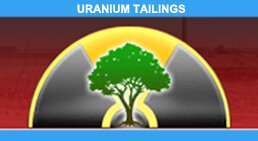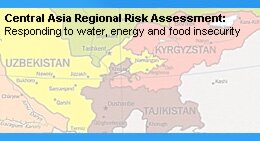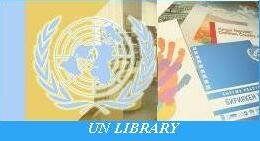|
The issue of uranium tailings and toxic industrial waste in the countries of Central Asia is extremely grave and the potential consequences of not effectively solving this problem could impact millions of people and protract the process of issue-solving for many years to come.
There can be no doubt that uranium tailings, especially those created in the initial stage of the USSR Atomic project represent a hazard. The current situation is aggravated by the fact that many radioactive waste storage facilities are located in regions of seismic activity, in landslide- and mudflow-prone sectors, in zones subject to flooding and high ground water levels and also near the banks of rivers that form the base of the large water basin of the Central Asian region. Many tailings are situated near towns, populated areas and state borders.
In Central Asia, there are several radioactive waste storage facilities that could be deemed ecologically sensitive due to their negative impact on the population’s health and the environment and are at risk of being destroyed by possible natural disasters and natural-anthropogenic cataclysms.
At present, there is no unified regional system that could conduct systemized monitoring of trans-boundary environmental pollution and information exchange in this field and coordinate practical activities to solve uranium legacy issues. Only in isolated instances do the heads of states and regions and the public at large perceive radioactive waste as a serious issue and a hazard to ecological safety. Even though the legislative base regulating the field of radioactive waste management has been developed to some degree in all the countries, the existing legislation is not harmonized with international norms and requirements.
The Regional conference “Uranium tailings: local problems, regional consequences, global solution” held in Bishkek on April 21-24, 2009, became a preparation stage for the International top-level forum in Geneva. Countries that participated in this conference developed the Road Map – participatory action plan to address problems of uranium tailings. In particular, a decision was made to complete collection and summarizing of priority project proposals and ideas of all countries before the Forum in Geneva to be included into the Framework Document and to draw attention of international organizations and financial institutions to these proposals to address the most urgent problems related to the uranium legacy and to mobilize donors’ assistance.
In general, project proposals from Central-Asian countries are aimed not only at addressing the urgent problems of the uranium legacy, but also to form long-term joint cooperation projects with the objective of ensuring the safety of radioactive waste tailings and the sustainable development of the countries in the region.
Please click on the links below to access information and materials regarding the Regional Conference on Uranium Tailings in Central Asia (Bishkek, 21-24 April 2009) and the High-Level International Forum "Uranium Tailings: Local problems, Regional Consequences, Global Solution" (Geneva, 29 June 2009).
News:
Special Rapporteur on Toxic Waste concludes his visit to the Kyrgyz Republic
The High-Level International Forum "Uranium Tailings: Local Problems, Regional Consequences, Global Solution" took place in Geneva on 29 June 2009
Regional Conference on Uranium Tailings held in Bishkek (21-24 April 2009)
High-Level International Forum "Uranium Tailings: Local Problems, Regional Consequences, Global Solution": Press clippings
Press clipping - The Times of Central Asia "Uranium tailings in Central Asia regional problem demands global solution"
Other materials:
High Level International Forum "Uranium Tailings: Local Problems, Regional Consequences, Global Solution": Joint Declaration
High-Level International Forum on Materials "Uranium Tailings: Local Problems, Regional Consequences, Global Solution": Speeches and presentations
Mr. Miroslav Jenca, Special Representative of the UN Secretary General, the Head of the UN Regional Centre for Preventive Diplomacy for Central Asia (UNRCCA), Co-Chairman of the Forum download here
Welcome address on behalf of Ms. Helen Clark, UNDP Administrator to the Forum participants download here
Mr. Kosimali Ahmedov, Minister of Emergency Situations of the Republic of Uzbekistan, Head of delegation download here
Mr. Neal Walker, UN Resident Coordinator, UNDP Resident Representative in the Kyrgyz Republic download speech here, download Power Point presentation here
Mr. Eugeny Kudriavtcev, Director of the Department, ROSATOM download Power Point presentation here
Mr. Manuel Recio, Division for Europe — Head of Section 1, Department of Technical Cooperation, IAEA download here
Mr. Marc Baltes, Senior Economic Adviser, Office of the Co-coordinator of OSCE Economic and Environmental Activities on behalf of the Secretary General of the OSCE download speech here
Mr. Vladimir Pryakhin, Ambassador, Head of OSCE Office in TajikistanMs. Esther Harlander, Senior Manager, EBRD Nuclear Safety Department download speech here
Mr. Craig Boljkovac, UNITAR Manager of the Chemicals and Waste Management Programme download speech here
Presentation of Norwegian Radiation Protection Authority Department for Emergency Preparedness and Environmental Radioactivity, Ms. Malgorzata Karpow Sneve, Senior Adviser download Power Point presentation here
Statement by A.Djumagulov, Chairman of the Board of Directors of Kara Balta Ore Mining Combine (Kyrgyz Republic) download speech here
Regional Conference on Uranium Tailings:
Uranium Tailing in Central Asia: Framework Document
Uranium Tailings in Central Asia: Results of the regional electronic discussion forum of CARNet
Uranium Tailing in Central Asia: extended summary
|





